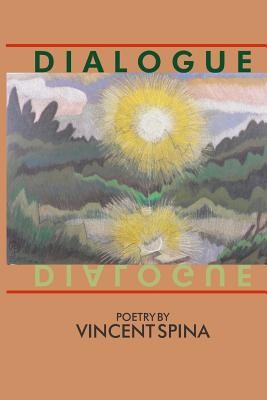
- We will send in 10–14 business days.
- Author: Vincent Spina
- Publisher: Poet's Press
- ISBN-10: 0922558795
- ISBN-13: 9780922558797
- Format: 15.2 x 22.9 x 0.6 cm, minkšti viršeliai
- Language: English
- SAVE -10% with code: EXTRA
Reviews
Description
Poet Vincent Spina has lived most of his life between two continents: North and South America. As one would suspect, therefore, there is a degree of "Spanglish" not only in the language of these poems but in the allusions to South American poets: namely, Cesar Vallejo and Pablo Neruda, but mostly Vallejo, much of whose poetry borders the line of what is possible to express in words and the inexpressible that waits just beyond. Juan Ramón Jiménez, a Spanish poet, asked in his poetry for the name of things (el nombre exacto de las cosas). And this exact name, the one we may never pronounce, is what Spina alludes to in these poems: the long name of things, the name that is born with us at our birth and grows as we grow and dies with us when we die. This is the name that defines us or indentifies us at our essence -- if there is an essence. There is another continent involved in these poems, too: Italy, the country of the poet's grandparents, which he visited while working on this book. As Spina elaborates: "I grew up with ways of thinking that were not 'wholly' American but rather had leaked into my consciousness -- perhaps my conscience -- through other sources. The last part of the book deals with other sources and their meanings. For instance, the tarantella is not the folksy stereotypical dance with which an Italian American wedding ends. Its rhythm is hypnotic. Its purpose is to put the dancers into a trance in which rituals of life and death are reenacted: moments of love, of passion, of honor. Its name refers to a tarantula--really a large spider--because within the trance the dancers thrash around their arms and legs like those of a frenzied spider. Thus, my aim was to "de-stereotype" the dance and "reveal" its original "mystery". Heidegger writes that for the Greeks, truth was revelation. Thus I wished in these poems to unveil certain truths about my people and about myself."
- Author: Vincent Spina
- Publisher: Poet's Press
- ISBN-10: 0922558795
- ISBN-13: 9780922558797
- Format: 15.2 x 22.9 x 0.6 cm, minkšti viršeliai
- Language: English English
Poet Vincent Spina has lived most of his life between two continents: North and South America. As one would suspect, therefore, there is a degree of "Spanglish" not only in the language of these poems but in the allusions to South American poets: namely, Cesar Vallejo and Pablo Neruda, but mostly Vallejo, much of whose poetry borders the line of what is possible to express in words and the inexpressible that waits just beyond. Juan Ramón Jiménez, a Spanish poet, asked in his poetry for the name of things (el nombre exacto de las cosas). And this exact name, the one we may never pronounce, is what Spina alludes to in these poems: the long name of things, the name that is born with us at our birth and grows as we grow and dies with us when we die. This is the name that defines us or indentifies us at our essence -- if there is an essence. There is another continent involved in these poems, too: Italy, the country of the poet's grandparents, which he visited while working on this book. As Spina elaborates: "I grew up with ways of thinking that were not 'wholly' American but rather had leaked into my consciousness -- perhaps my conscience -- through other sources. The last part of the book deals with other sources and their meanings. For instance, the tarantella is not the folksy stereotypical dance with which an Italian American wedding ends. Its rhythm is hypnotic. Its purpose is to put the dancers into a trance in which rituals of life and death are reenacted: moments of love, of passion, of honor. Its name refers to a tarantula--really a large spider--because within the trance the dancers thrash around their arms and legs like those of a frenzied spider. Thus, my aim was to "de-stereotype" the dance and "reveal" its original "mystery". Heidegger writes that for the Greeks, truth was revelation. Thus I wished in these poems to unveil certain truths about my people and about myself."


Reviews